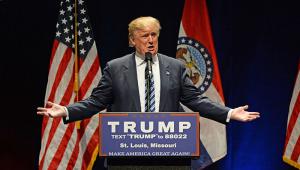Its spokesperson Gerry Rice said: “The import restrictions...are likely to cause damage not only outside the US, but also to the US economy itself, including to its manufacturing and construction sectors, which are major users of aluminium and steel.
“We are concerned that the measures proposed by the US will, de facto, expand the circumstances where countries use the national security rationale to justify broad-based import restrictions.
“We encourage the US and its trading partners to work constructively together to reduce trade barriers and to resolve trade disagreements without resort to such emergency measures.”
UK prime minister Theresa May this weekend told Trump of “deep concern at the president’s forthcoming announcement on steel and aluminium tariffs, noting that multilateral action was the only way to resolve the problem of global overcapacity in all parties’ interests”, a Downing Street statement said.
In the US the Council on Foreign Relations think-tank said: “The problems in the steel and aluminium industries are real - global overcapacity caused primarily by Chinese state subsidies to their producers.
“But the proposed measures are wildly indiscriminate, and will hit many countries, among them the closest US allies and others that have played by the rules of the trading system”.
Announcing his intention to impose tariffs, Trump said the American government had investigated “potential national security risks associated with imports of steel and aluminium”.
He said: “As a result of these investigations, the Department of Commerce determined that the quantities of imported steel and aluminium represent potential threats to our national security.”
He said he would consider “several proposals – including quotas and tariffs – to adjust steel and aluminium import levels and keep our nation secure”.













